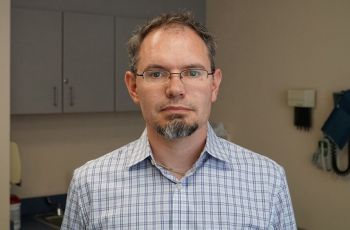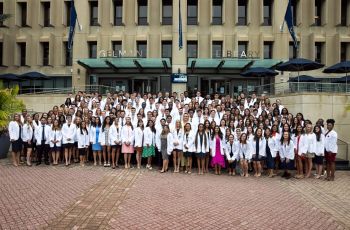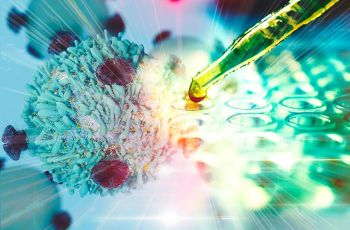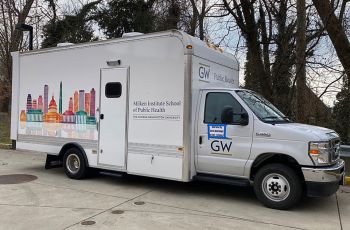Featured News
Assistant Professor of Medicine at the George Washington University (GW) School of Medicine and Health Sciences (SMHS) Hana Akselrod, MD, MPH, has been selected to serve as the COVID-19 Response Lead for the GW Medical Faculty Associates (GW MFA), advising GW MFA leadership on COVID-19…
Brandon Kohrt, MD, PhD, has spent more than two decades in countries where psychiatric care was scarce. One solution, he found, was recruiting and training non-psychiatrists to help shoulder the burden, known as a task-sharing model. Now, he’s bringing this strategy to underserved populations in…
The start of any academic year is a special time, but for the near capacity crowd at Lisner Auditorium Saturday for the 21st Annual George Washington University School of Medicine and Health Sciences White Coat and Honor Code Ceremony, the event symbolized the first of many milestones for members…
The George Washington University (GW) Cancer Center recently announced the selection of the 2021 GW Cancer Center Awards, recognizing excellence in research, mentorship, and early career contributions.
The GW School of Medicine and Health Sciences HIVE lab takes 5th place out of 44 teams competing teams the Veterans Administration’s 2020–21 National AI Tech Sprint. Their prototype application harnesses powerful machine-learning tools for treatment outcome prediction and guided clinical…
The George Washington University (GW) School of Medicine and Health Sciences (SMHS) was recently awarded a T32 Ruth L. Kirschstein National Research Service Award institutional research training grant from the Health Resources and Services Administration (HRSA), an agency of the U.S. Department of…
Congratulations to all our students, alumni, faculty, and staff on their recent success. The items below highlight the breadth of achievement and expertise that can be found at the George Washington University (GW) School of Medicine and Health Sciences (SMHS) in recent months.
Life before COVID-19 was busy for Rebecca [not her real name], very busy. She’s the quintessential Washington professional: a D.C. lawyer who regularly logged 60-hour work weeks, spent nights out at the Kennedy Center or at dinner parties with friends, and always made time for the gym.
The GW School of Medicine and Health Sciences has tapped Grace Henry, EdD, to serve as its new assistant dean and director of the Office of Diversity and Inclusion. The position was created to advance the student experience in academic excellence and embrace and enhance diversity and inclusion…
A team of researchers from the George Washington University (GW) has been selected as one of five sites participating in the HIV Prevention Trials Network (HPTN) INTEGRA study (HPTN 094).








